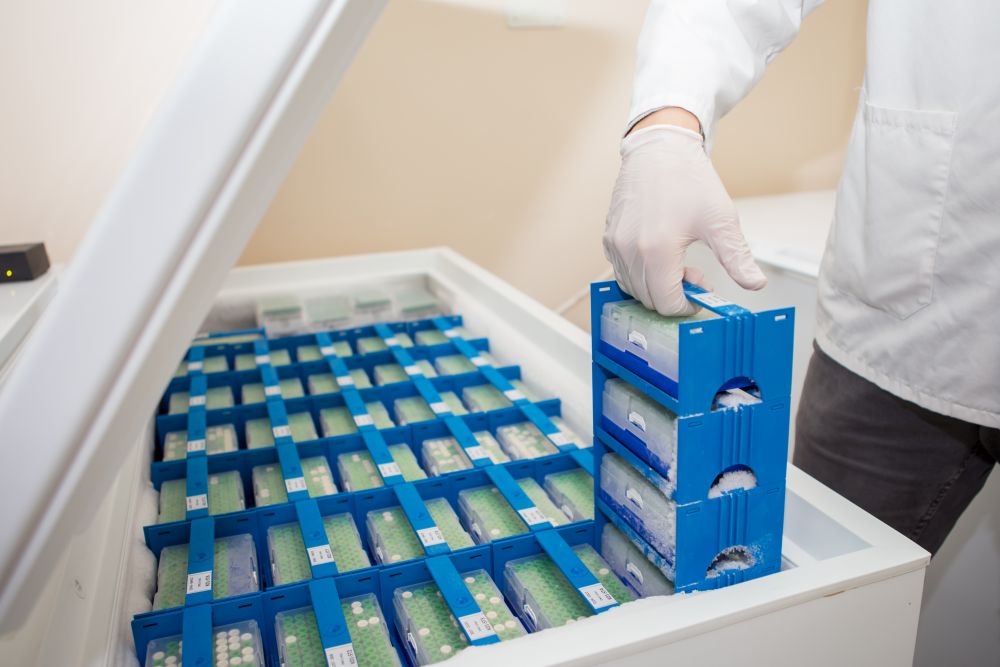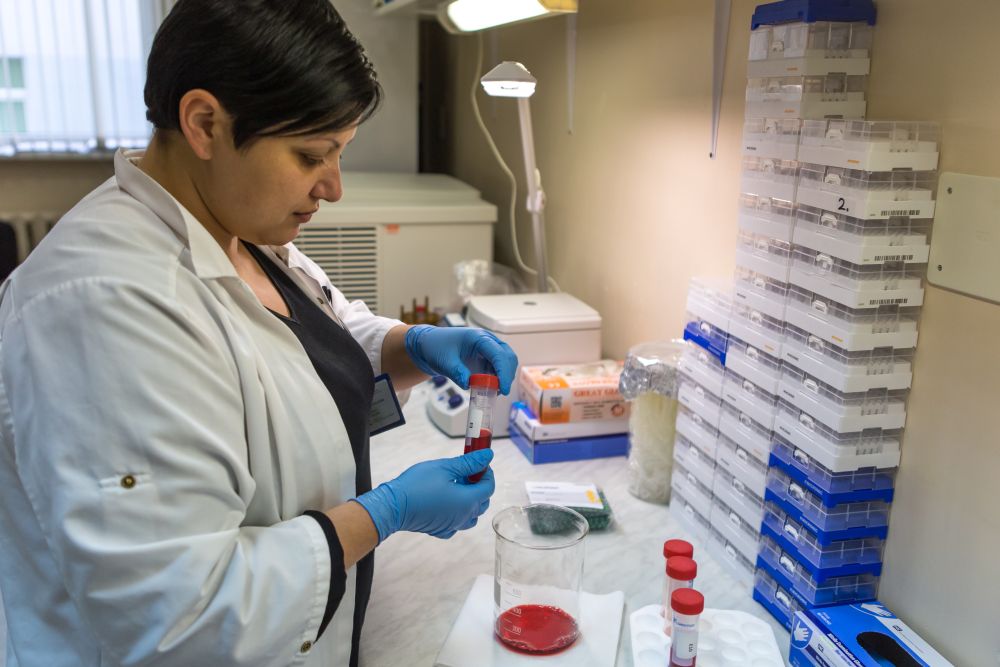What is Genome database?
Genome Database of Latvian population is national biobank, that gathers, maintains and process health and hereditary information from Latvian population and collection of biological materials for research, prophylaxis and health care improvement.

Genome Database of Latvian population is maintained by subunit of Latvian Biomedical Research and Study centre – Genome centre. Genome Database collects phenotypical and genotype data, as well as blood derived (DNA, plasma, serum) biobank. The developed infrastructure is accessible for scientific research studies.
Curranty, Genome Database of Latvian population recruits voluntary participants that are older than 18 years. Recruitment is carried out at several hospitals enrolling patients with selected diagnosis and healthy volunteers in specific age groups. Successful research project need to have both disease cases and matching population based controls, therefore everyone can participate in Genome database project.

Why Genome Database is needed?
The aim of Genome Database id to create infrastructure of genetic material and information, to improve diagnostics and treatment of different illnesses (coronary diseases, diabetes, cancer, other diseases) and enable prevention on specific conditions. To reach statistical significance in biomedical research large sample size is required (for example, over 1000 diabetes patients), that is impossible to gather without central collection system of biological materials and related information. Genome Database plans to collect genetic material and information about 40 000 to 60 000 individuals from Latvian population, to provide infrastructure resource for research of genetic and environmental factors that influence human health.
Using information provided by participants, results of genetic and biochemical testing scientists will have opportunity to investigate why some people develop the disease but other stay healthy. It will help to discover new remedies to avoid serious adverse complications and avoid death risk. Similarly, as blood donation, Genome Database not always can give rapid solution for the recruited participants, but it will help to avoid similar conditions in our children and further generations. In specific research projects discovered gene alterations can benefit patients’ prognostics and treatment momentarily.
Donors of biological material are recruited to Genome Database in several medical institutions and general practitioner praxis and in collaboration with diagnostic laboratories in Latvia. Before recruitment donor of biological material is introduced with full information about project goals and procedures. After information process donor voluntarily can decide to participate in Genome Database project. The signature of informed consent is legally binding agreement that encompass the use of the biological materials and data. The blood samples and data are collected by qualified medical personnel. Health and heredity questionnaire is filled based on the information provided by the donor. All biological materials and documents are coded and delivered to Genome Database of Latvian population following specific transportation protocols.

How are collected biological materials and data stored?
Received materials and data are coded, substituting all personal information (name, surname, personal ID number and address) by unique code. In this way scientists and medics that will study information or samples in database will no have access to personal data. Blood samples are processed in Genome centre laboratory separating plasma, serum, white blood cells and extracting DNA, all samples are coded and stored in restricted access freezers. Stored information and biological samples are accessible only to research projects, that have received approval from Central Medical Ethics committee. The information obtained during genetic research is stored in information system of Genome database.
The informed consents containing personal data of participants are delivered to State population genome registry within five days from obtainment. Participants have right to inquire about the information stored about him/herself in Genome Database by official application to Genome registry.
Sample of informed consent of Genome Database available here.
Description of creation and results of Genome Database is published in Journal of Epidemiology. Link to the publication here.